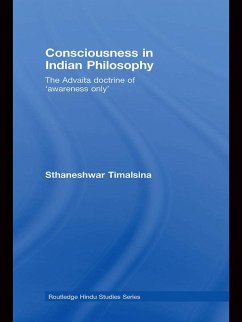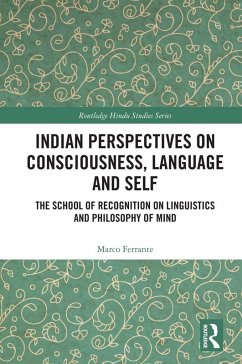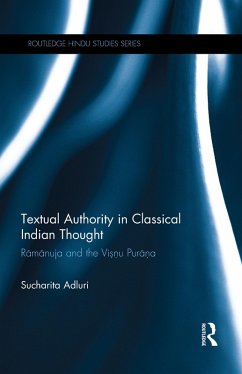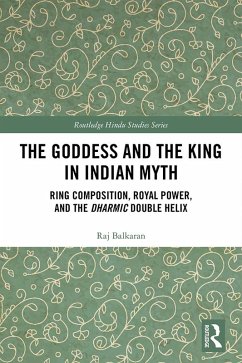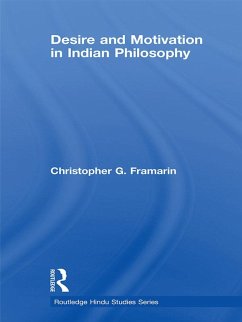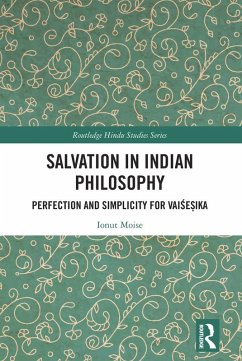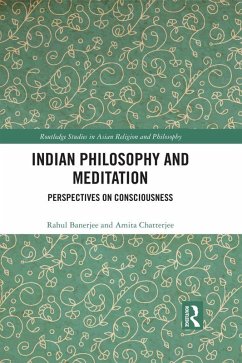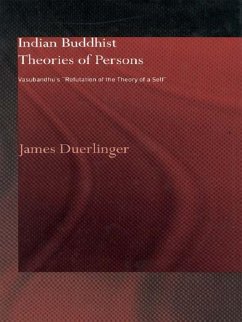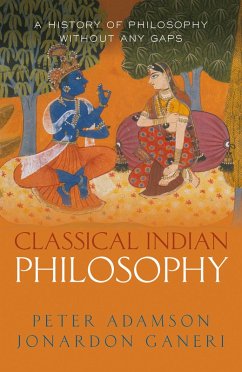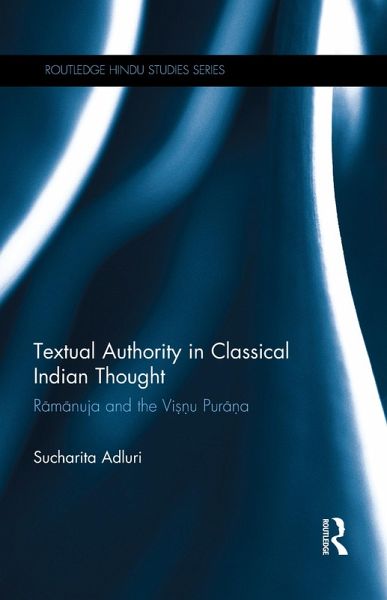
Textual Authority in Classical Indian Thought (eBook, PDF)
Ramanuja and the Vishnu Purana
Versandkostenfrei!
Sofort per Download lieferbar
31,95 €
inkl. MwSt.
Weitere Ausgaben:

PAYBACK Punkte
16 °P sammeln!
Theistic Vedanta originated with Ramanuja (1077-1157), who was one of the foremost theologians of Visistadvaita Vedanta and also an initiate of the Srivaisnava sectarian tradition in South India. As devotees of the God Visnu and his consort Sri, the Srivaisnavas established themselves through various processes of legitimation as a powerful sectarian tradition. One of the processes by which the authority of the Srivaisnavas was consolidated was Ramanuja's synthesis of popular Hindu devotionalism with the philosophy of Vedanta.This book demonstrates that by incorporating a text often thought to ...
Theistic Vedanta originated with Ramanuja (1077-1157), who was one of the foremost theologians of Visistadvaita Vedanta and also an initiate of the Srivaisnava sectarian tradition in South India. As devotees of the God Visnu and his consort Sri, the Srivaisnavas established themselves through various processes of legitimation as a powerful sectarian tradition. One of the processes by which the authority of the Srivaisnavas was consolidated was Ramanuja's synthesis of popular Hindu devotionalism with the philosophy of Vedanta.
This book demonstrates that by incorporating a text often thought to be of secondary importance - the Visnu Purana (1st-4th CE) - into his reading of the Upanisads, which were the standard of orthodoxy for Vedanta philosophy, Ramanuja was able to interpret Vedanta within the theistic context of Srivaisnavism. Ramanuja was the first Brahmin thinker to incorporate devotional puranas into Vedanta philosophy. His synthetic theology called Visistadvaita (unity-of-the-differenced) wielded tremendous influence over the expansion of Visnu devotionalism in South India and beyond. In this book, the exploration of the exegetical function of this purana in arguments salient to Ramanuja's Vedanta facilitates our understanding of the processes of textual accommodation and reformulation that allow the incorporation of divergent doctrinal claims.
Expanding on and reassessing current views on Ramanuja's theology, the book contributes new insights to broader issues in religious studies such as canon expansion, commentarial interpretation, tradition-building, and the comparative study of scripture. It will be of interest to students and scholars of Indian philosophy and Religious Studies.
This book demonstrates that by incorporating a text often thought to be of secondary importance - the Visnu Purana (1st-4th CE) - into his reading of the Upanisads, which were the standard of orthodoxy for Vedanta philosophy, Ramanuja was able to interpret Vedanta within the theistic context of Srivaisnavism. Ramanuja was the first Brahmin thinker to incorporate devotional puranas into Vedanta philosophy. His synthetic theology called Visistadvaita (unity-of-the-differenced) wielded tremendous influence over the expansion of Visnu devotionalism in South India and beyond. In this book, the exploration of the exegetical function of this purana in arguments salient to Ramanuja's Vedanta facilitates our understanding of the processes of textual accommodation and reformulation that allow the incorporation of divergent doctrinal claims.
Expanding on and reassessing current views on Ramanuja's theology, the book contributes new insights to broader issues in religious studies such as canon expansion, commentarial interpretation, tradition-building, and the comparative study of scripture. It will be of interest to students and scholars of Indian philosophy and Religious Studies.
Dieser Download kann aus rechtlichen Gründen nur mit Rechnungsadresse in A, B, BG, CY, CZ, D, DK, EW, E, FIN, F, GR, HR, H, IRL, I, LT, L, LR, M, NL, PL, P, R, S, SLO, SK ausgeliefert werden.




